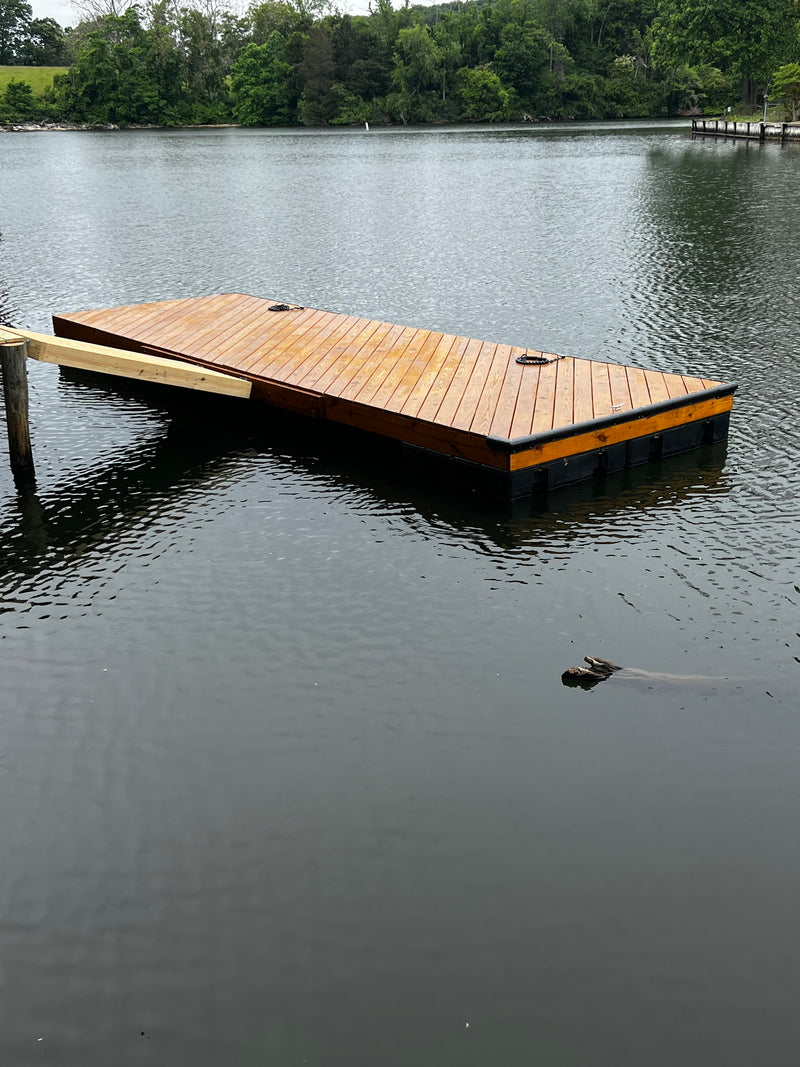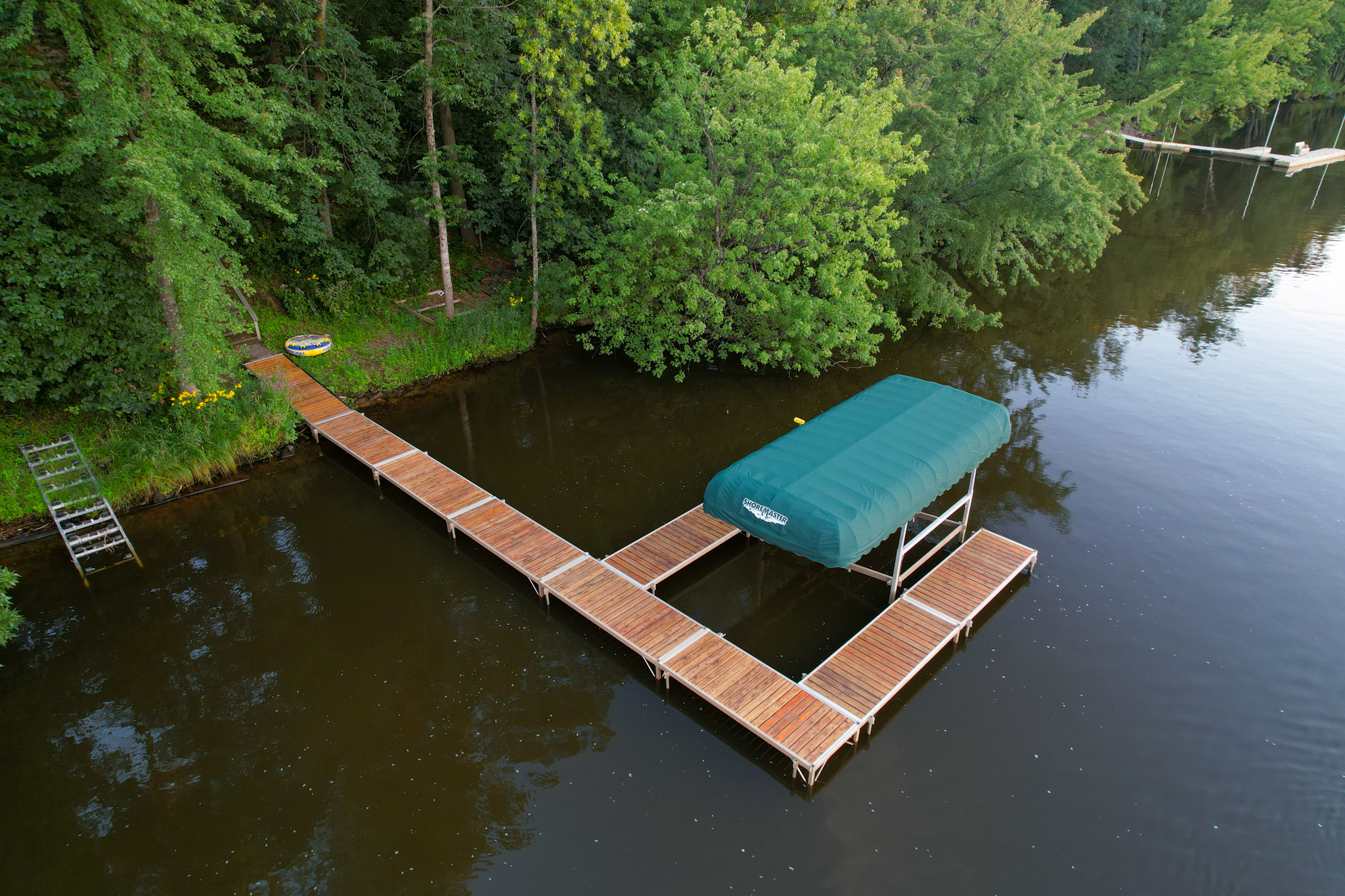Discover the Series Of Floating Dock Services Designed to Suit Every Seafarer's Needs
Discover the Series Of Floating Dock Services Designed to Suit Every Seafarer's Needs
Blog Article
Floating Docks: The Perfect Option for Versatile Water Gain Access To
Floating docks existing a compelling remedy for a variety of water gain access to requires, providing adaptability that transcends traditional mooring alternatives. Their capacity to adapt to ever-changing water degrees while making certain security and security makes them especially useful for both recreational and business applications. The modular nature of floating docks facilitates modification, providing to certain requirements. Nevertheless, the nuances of installment and maintenance, along with the range of applications, warrant a closer evaluation to fully value their possible advantages and ramifications for waterway accessibility methods.
Advantages of Floating Docks
Floating docks deal numerous benefits that enhance water access for numerous applications. Their capacity to fluctuate with altering water levels makes them especially useful in environments with rising and fall trends or seasonal variants. This versatility makes sure that vessels can quickly moor without concern for the water's deepness, offering a reputable platform for recreational, business, and commercial usages.
In addition, floating docks are typically built from sturdy products that stand up to deterioration, making them suitable for long-lasting use in aquatic environments. Their installation is commonly less invasive than conventional fixed docks, reducing the environmental effect and assisting in quicker implementation (floating dock services). This adaptability allows for simpler moving or reconfiguration according to customer requirements or ecological modifications
Security is one more essential advantage; floating docks can offer steady accessibility for individuals disembarking or boarding from watercrafts and decrease the danger of mishaps related to unstable surface areas. They can be made to suit a selection of devices, such as fenders and cleats, enhancing capability. Generally, floating docks stand for an efficient option for enhancing water gain access to across varied markets while advertising safety and environmental sustainability.

Sorts Of Floating Docks
Numerous sorts of floating docks deal with various requirements and environments, each designed with certain functions to maximize performance. The most common types consist of modular docks, which include interlocking sections that allow for easy modification and expansion. These docks are perfect for entertainment usage, as they can be customized to fit numerous watercraft sizes and water conditions.
Another preferred option is the fixed floating dock, which remains anchored in place but drifts with altering water levels. floating dock builder. This type is particularly suited for areas with marginal tidal fluctuations, providing steady accessibility for fishing or swimming. Additionally, there are drive-on docks, which include a sloped style that permits boats to conveniently drive on and off, making them ideal for individual boat and smaller sized vessels
For industrial applications, heavy-duty floating docks are offered, constructed from reinforced materials to endure significant tons and severe marine atmospheres. Green floating docks make use of lasting materials and designs to lessen environmental impact, usually incorporating functions like plants to sustain local wildlife. Comprehending the various kinds of floating docks guarantees that users can choose one of the most proper remedy for their specific demands.
Installation Process Introduction
A successful setup of floating docks requires cautious planning and interest to information to ensure optimal performance and security. The first step entails analyzing the website conditions, consisting of water deepness, present, and potential challenges. This evaluation educates the option of the proper dock materials and design customized to the details setting.
Following, acquiring required licenses is important, as lots of territories have policies concerning construction on water bodies. Once consents are safeguarded, the installation can proceed. Begin by preparing the structure, which may entail anchoring systems or pilings tailored to the dock type and local conditions.
Complying with the structure configuration, set up the dock areas according to supplier requirements. Make certain that all elements are securely attached and straightened to stand up to environmental stress and anxieties. Position the dock in the marked location, guaranteeing it is level and stable.

Upkeep Tips and Ideal Practices
After the installment procedure is total, continuous maintenance plays an important duty in making certain the long life and performance of floating docks. Normal examinations should be carried out to identify any signs of wear, damage, or degeneration - floating docks. Check for any kind of loose fittings, cracks, or splitting up in the dock areas, as these can endanger architectural honesty
Cleaning up the dock is vital to remove debris, algae, and various other build-up that can affect its look and safety and security. Use a mild stress clean occasionally to maintain tidiness without creating damage to the surface area. In addition, using a safety sealer every couple of years can aid improve longevity and withstand ecological wear.
Focus on the mooring lines and supports, ensuring they are safe and secure and read this article free from rust. Change any type of degraded elements quickly to prevent hazards. Seasonal changes may additionally be necessary; throughout extreme weather, rearranging or enhancing the dock can stop damage.
Applications for Floating Docks
Floating docks offer a multitude of applications, accommodating both business and leisure requirements. In entertainment setups, they provide smooth accessibility to rivers for activities such as boating, fishing, and swimming. Their flexible nature permits for setup in differing water degrees, ensuring risk-free and stable gain access to no matter of tidal fluctuations.
Commercially, floating docks are essential for marinas and waterside businesses. They promote the docking of vessels, making it possible for efficient discharging and loading of products. Their modular style permits simple development or reconfiguration to suit altering business needs, making them perfect for watercraft services, excursion procedures, or fishing charters.
Additionally, floating docks are used in environmental applications such as marine study and environment remediation. They can function as systems for clinical research studies, checking water quality, or carrying out wild animals surveys web without disturbing delicate ecological communities.
In commercial contexts, floating docks are utilized in building jobs, offering access to hard-to-reach areas for equipment and workers. Their versatility, sturdiness, and minimal effect on the setting make them an optimum choice for a variety of applications, enhancing both performance and access in different water-based settings.
Conclusion
Finally, floating docks stand for an optimum service for diverse water gain access to requires, owing to their adaptability, durability, and modular layout. These structures promote safe mooring for different applications while reducing ecological impact throughout installment. The decreased upkeep requirements additionally boost their practicality. Floating docks offer as a valuable asset for recreational, industrial, and ecological projects, making sure reputable access to waterways and advertising lasting techniques in marine settings.
Floating docks present a compelling remedy for Continued a selection of water accessibility requires, providing versatility that transcends typical mooring options.Floating docks offer countless advantages that improve water access for various applications. Overall, floating docks represent an effective solution for enhancing water gain access to throughout diverse fields while promoting safety and ecological sustainability.
One more popular alternative is the fixed floating dock, which stays anchored in location however drifts with altering water levels.In final thought, floating docks represent an optimum solution for varied water access needs, owing to their flexibility, resilience, and modular layout.
Report this page